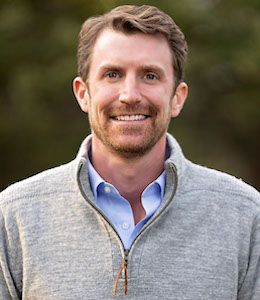
Bretton T. Alvaré, PhD
- Associate Professor
- Gender & Sexuality
- Arts & Culture
- Social Justice
Affiliated Programs
Education
- PhD, Cultural Anthropology (2011)
Temple University (PA)
About Me
Because my family has roots in Cuba, I have always been interested in the history and culture of the Caribbean region, particularly the various forms of "Afro-Caribbean" spirituality that emerged there during the colonial era, including Voudou, Shango, Kumina, Orisha, and Rastafari. My dissertation research focused on a faith-based Rastafari non-government organization (NGO) in the Republic of Trinidad and Tobago, whose leaders were part of a sustained guerrilla movement, the National United Freedom Fighters (NUFF), from 1972–1975. By comparing their NGO-based activism with the NUFF's armed struggle, I attempted to identify the structural factors that predispose populations to engage in different modes of political participation. I was only able to gain these insights by spending extended periods of time in the field, face-to-face with the people I meant to study.
This kind of research experience is essential to the field of cultural anthropology and, for that reason, I give all of my students multiple opportunities to conduct their own original fieldwork locally, abroad, or both. Students in my courses do not only learn about anthropology; they must actually go out and do it for themselves.
- Transnational social movements
- Globalization and development
- Afro-Caribbean religion and culture
- Latino history and culture
- Understanding race and racism
Research Interests
I am an ethnographer whose research focuses on Afro-Caribbean worldviews and faith-based political participation in the Anglophone Caribbean. I have been conducting fieldwork with grassroots, faith-based NGOs in Trinidad and Tobago since 2005. I am also interested in studying urban issues related to institutional racism, and I'm currently collaborating with a local community partner on an ethnographic study of the barriers to academic success facing students at Chester High School.
Publications
- Alvaré, B.T. (2014). Haile Selassie and the gospel of development: Exploring the role of hegemony in faith-based development in Trinidad, West Indies. Journal of Latin American and Caribbean Anthropology, 19(1), 126–147.
- Mchenry, N., Alvaré, B.T., Bowes K., & Childs, A. (2013). Sharing the environment: Cultural exchange through inquiry-based environmental education in Trinidad and Tobago (T & T) and the United States. International Journal of Environment and Science Education, 8(2), 381–400.
- Alvaré, B.T. (2010). "Babylon makes the rules": Compliance, fear, and self-discipline in the quest for official NGO status. PoLAR: Political and Legal Anthropology Review, 33(2), 178–200.
Professional Affiliations & Memberships
American Anthropological Association (AAA), Society for Latin American and Caribbean Anthropology (SLACA)
Awards
- Hartford Undergraduate Community Research Award (2014)
- Advanced Fellow, Widener University Service-Learning Faculty Fellowship (2014)
- Faculty Researcher, National Socio-Environmental Synthesis Center (SESYNC) Teaching Study (2012–2014)
News
In the Media
- Delaware County Daily Times
Widener honors professors
- The Philadelphia Inquirer
The mayor and 2 rivals battle for the right to run bankrupt Chester: ‘It’s high drama’
- Courier Times
Bucks, Montgomery County business achievers
Noteworthy
Widener Professors and Alumni of Community Engaged Teacher Education Program Write Book Chapter
Widener University professors in the Center for Education’s Community Engaged Teacher Education (CETE) program collaborated to write Chapter 4 Shared Power in Teacher Preparation: University, School, and Community in a recently published book, titled The Power of Community-Engaged Teacher Preparation.
The chapter was written by Professor Nadine McHenry, who coordinates the CETE program, as well as Director of the Widener Child Development Center Essence Allen-Presley, Associate Professor Bretton Alvaré, retired Stetser Elementary Principal Janet Baldwin, alumna Rev. Hilda Campbell, and alumna Taylor Borgstrom.
The book focuses on how and why community-engaged teacher preparation is a vital approach to address an educational system that his historically deficient, discriminatory, and inequitable.
